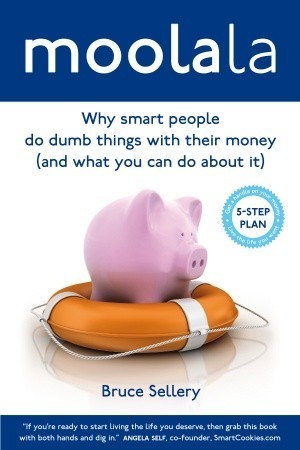
Moolala: Why Smart People Do Dumb Things with Their Money - and What You Can Do About It
Book Description
What if the smartest minds fall prey to the dumbest money mistakes? Enter the world of financial folly, where even the brightest struggle with their wallets. In "Moolala," Bruce Sellery uncovers the surprising psychological traps that ensnare even the most educated, revealing how emotions can lead to disastrous decisions. Packed with eye-opening insights and practical strategies, this guide equips readers to sidestep common pitfalls and reclaim financial control. As wealth slips through fingers like grains of sand, one question looms: will you break the cycle and make smarter money moves before it’s too late?
Quick Book Summary
"Moolala" by Bruce Sellery navigates the perplexing world of personal finance, exploring why even smart, well-educated individuals often make irrational money choices. Sellery reveals that intelligence doesn't equal financial savvy due to the powerful influence of emotions, habits, and ingrained biases. Unpacking psychological traps like fear, denial, and instant gratification, Sellery provides a framework for recognizing and overcoming these tendencies. The book blends relatable anecdotes and practical strategies, empowering readers to set clear goals, develop healthier money habits, and take control of their financial future. "Moolala" is both an eye-opener and a hands-on guide for anyone seeking to break the cycle of costly money mistakes and achieve true financial well-being.
Summary of Key Ideas
Table of Contents
The Impact of Emotions and Biases on Financial Choices
Bruce Sellery opens by illuminating the disconnect between intelligence and smart money management. Many capable, educated people repeatedly make poor financial decisions, not because they lack knowledge but because emotions and cognitive biases overpower rational thinking. Sellery explains that behaviors like procrastination, denial, and a desire for instant rewards can sabotage financial health, even when people are aware of their negative consequences. His core message is that overcoming these barriers requires understanding the psychological forces at work.
Identifying Personal Money Patterns and Traps
The next part of the book delves into how readers can identify their personal money patterns. Sellery encourages self-reflection to uncover individual habits around spending, saving, and investing. By tracking past financial decisions and pinpointing triggers for poor choices, individuals gain awareness of their unique vulnerabilities. Sellery provides exercises and real-life stories to help demystify these behavioral patterns, showing readers that recognizing their own financial "blind spots" is a crucial step toward improvement.
Strategies for Building Better Money Habits
With newfound awareness, Sellery shifts focus to practical strategies for changing unhelpful habits. He advocates for breaking down overwhelming goals into manageable steps, automating finances to sidestep willpower lapses, and making positive habits visible and rewarding. The book introduces systems for monitoring progress and implementing nudges, all aimed at reducing the friction between intention and action. Practical suggestions like setting up automatic savings transfers or eliminating temptations help translate good intentions into tangible results.
Goal Setting and Action-Oriented Financial Planning
Sellery emphasizes the importance of setting clear, achievable financial goals. He insists that vague aspirations rarely yield real change, urging readers to define what financial success looks like for them. The book offers a framework for articulating "why" money matters on a personal level, tying everyday choices to broader life ambitions. Sellery also explores the power of visualization, commitment devices, and regular milestones to maintain motivation on the journey to financial well-being.
The Role of Support, Systems, and Accountability
Finally, Sellery highlights the value of support networks, systems, and accountability partners in sustaining financial progress. He encourages readers to seek out like-minded peers, financial advisors, or even specific apps that provide reminders and feedback. By enlisting support and building structure, individuals are far more likely to follow through on their plans. "Moolala" concludes with a call to action, motivating readers to break the cycle of self-sabotage and become confident, proactive stewards of their own money.
Download This Summary
Get a free PDF of this summary instantly — no email required.





